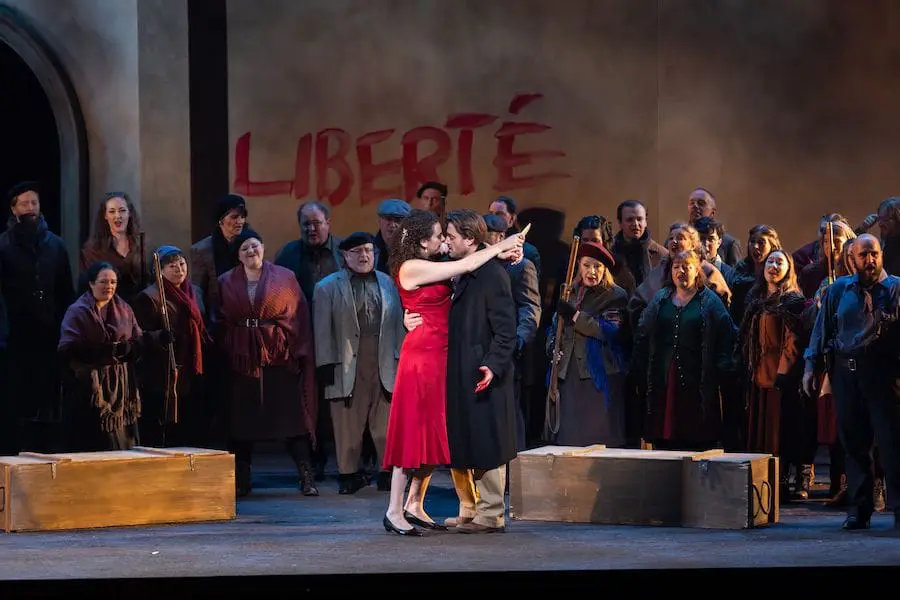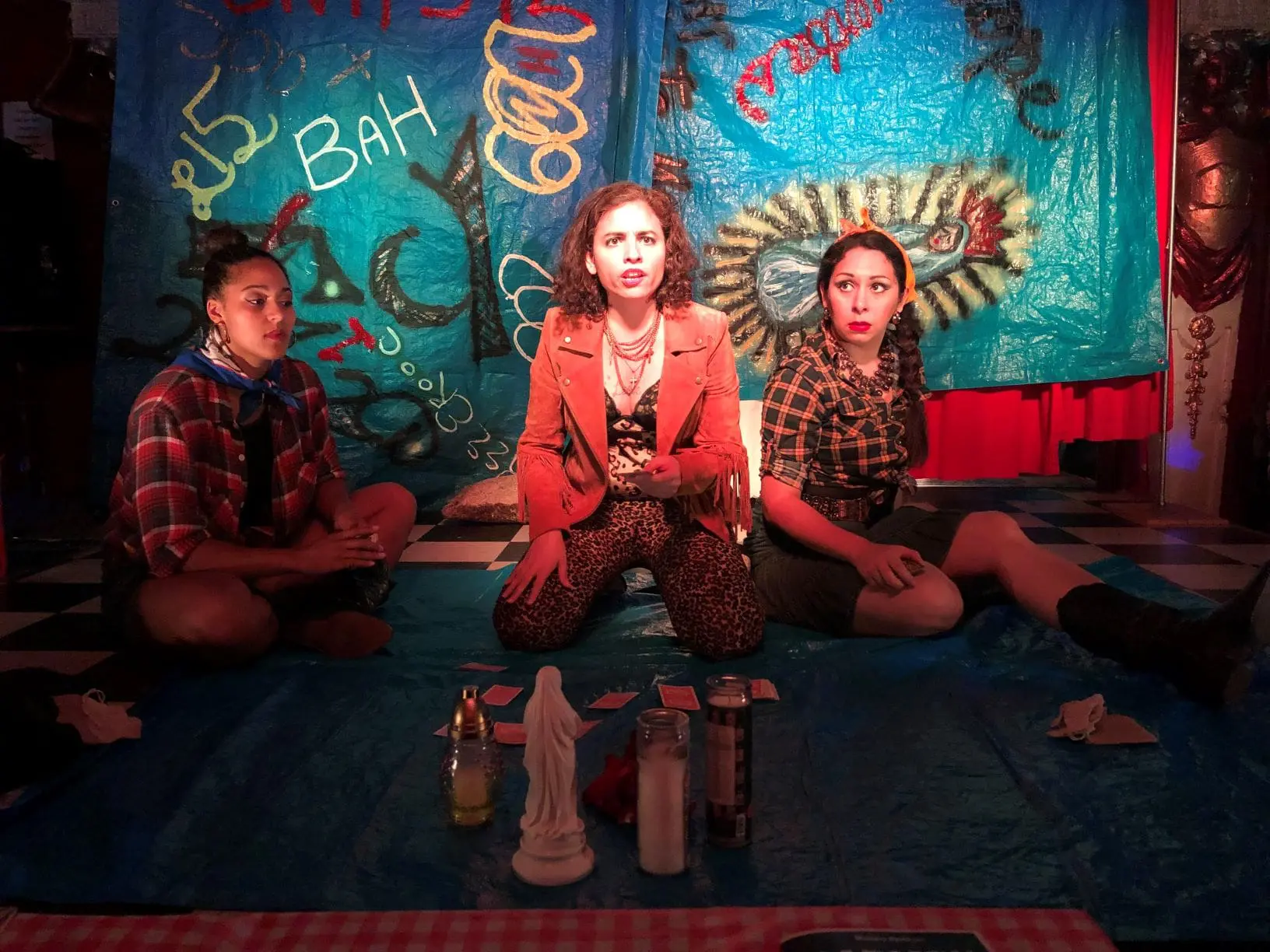Edmonton Opera opened its 60th anniversary season on October 19, a Thursday, rather than its traditional Saturday night, with Bizet’s Carmen. The company last did Carmen in 2016, and they enlisted the same director, Maria Lamont, for this three-show production. This time, Lamont got co-directorial billing with Anna Theodosakis. The 2016 production was head-scratchingly tepid, drained of the intrinsic sensuality embodied by the title character. This production, on the other hand, gave us all the seductiveness and violence one could hope for from an opera about a socially transgressive woman, bound only by her own irrepressible desires.
From the opening scene in front of the cigarette factory, the atmosphere was thick with testosterone-charged men ogling the women coming to work. When Micaëla (Jamie Groote) arrived looking for Don José, she was confronted by a group of soldiers, led by Corporal Moralès (Bruno Roy), who took the teasing a step toward menacing sexual harassment.
The subsequent fight between the female factions in the factory contributed to establishing a disruptive atmosphere befitting an opera centred on a boundary-breaking character like Carmen. The Cantilon Children’s Choir lightened the atmosphere when they arrived to cheer the changing of the guard, and they seemed to be enjoying themselves on the big Jubilee Auditorium stage. Carmen’s first encounter with Corporal Don José established emphatically who would be in charge of this doomed relationship. Relative newcomer contralto Rose Naggar-Tremblay seemed more than comfortable in the role of the uninhibited woman. Besides singing with a rich, attractive tone, she exuded convincingly more than just a flirtatious interest in the men she wanted. In Act Two she gave Don José a brief lap dance, and ultimately, he was on the floor between her legs when he heard the trumpet call, summoning him to his military duty. This production showed the heat of the drama as well as singing about it.
Tenor Adam Luther’s Don José had the look of a man beaten before he got started. Luther is a fine lyric tenor, and he used that talent to capture the ultimate pathos of a man trapped by his erotic obsession. He was especially moving in moments when he pleaded with Carmen to take him back. He owned the final scene, before he went homicidal, absorbing Carmen’s contempt with a palpable confusion until he snapped.
Soprano Jamie Groote is another emerging talent. Her Micaëla had the requisite open-hearted sweetness of the girl who can’t compete with the force of nature that is Carmen. Her strength lay her uncompromising fidelity to the family values she and Don José were raised in, and her Act Three “Je dis que rien ne m’epouvante” was as fine a performance of that courage-bolstering aria as I’ve heard. The clownish role of Escamillo was sung by baritone Lester Lynch. Lynch went for maximum blusterous self-promoter, and the effect was big, bold but too vocally brash, in my view. The noisy matador made his mark, but his impact was more outlandish than charmingly machismo.
The one scene I always enjoy for its uplifting effervescence is the card reading banter between Frasquita (Sawyer Craig) and Mercédes (Adanya Dunn). The two women got good laughs as they fantasized about the kind of romantic success they were destined for, but a girlish giddiness I’ve seen in other productions was missing.
The set was originally designed for the 2016 production by Camellia Koo, and it served well as the walls of the factory and the façade of the tavern in Act 2. The Act three set, lit by Bonnie Beecher to convey the dimness of a smugglers’ mountain lair, was a two-tier scaffold that created a terraced effect for the performers’ business.
The Edmonton Symphony, led by Edmonton Opera’s first Music Director, Simon Rivard, gave nuanced support to the singers. The winds and brass were particularly excellent, and the flute work in the Entr’acte before Act 3 was exquisite. Many of the singers in this production are still categorized as emerging. Dunn and Roy are, in fact, in Edmonton Opera’s relatively new development program. Judging from the audience’s reaction to what they heard, no one felt any quality was compromised.
This was a better than solid, perfectly clear rendition of the kind of canonic work Edmonton audiences have always appreciated. The company gave a thoughtful nod to the its beginnings as it goes into its seventh decade by bringing tenor Ermanno Mauro to Edmonton from Toronto for the opening. Mauro began his career in Edmonton. He sang Pinkerton in the first Madama Butterfly production and went on to a long international career.
Related Content ↘
Opera Canada depends on the generous contributions of its supporters to bring readers outstanding, in-depth coverage of opera in Canada and beyond. Please consider subscribing or donating today.














